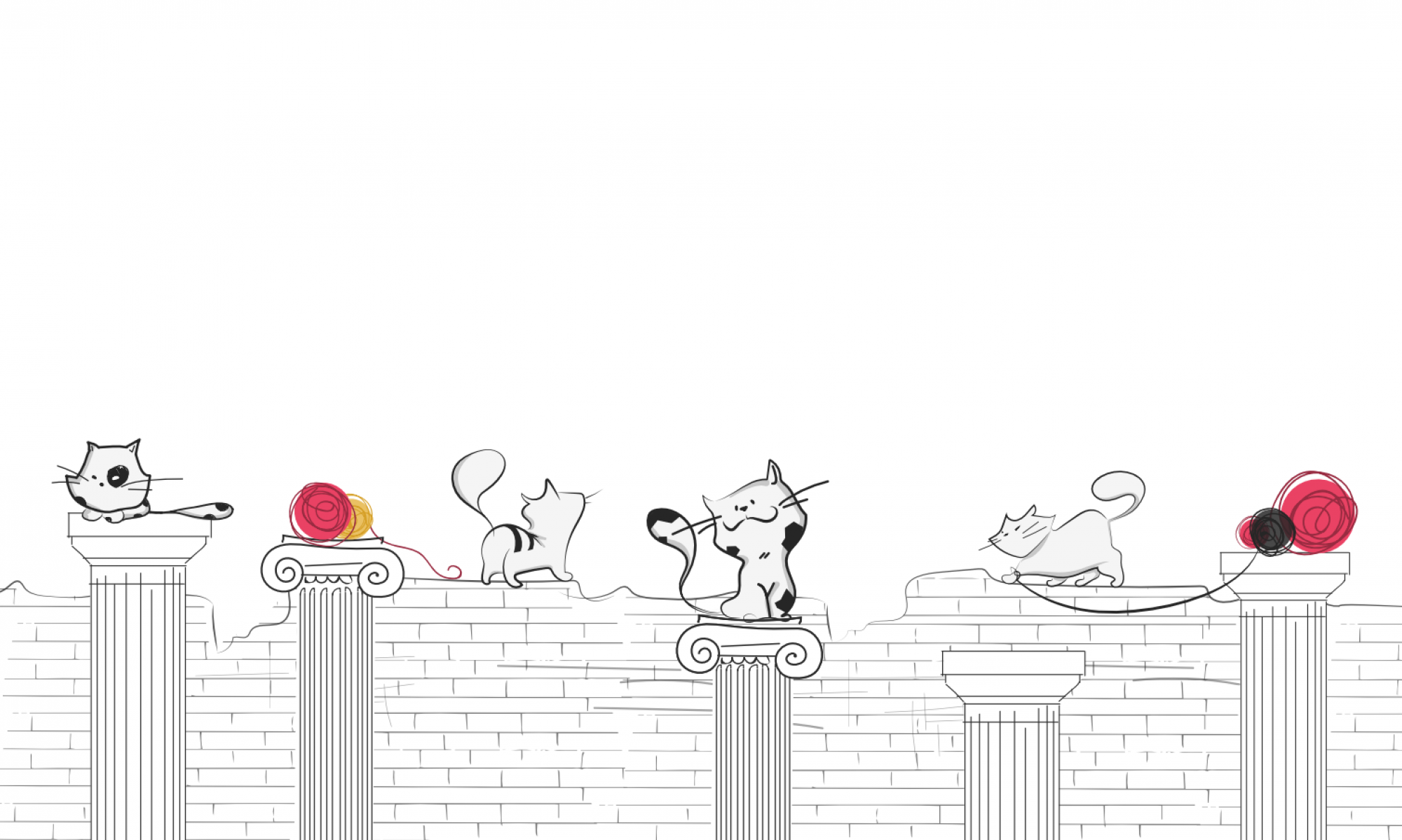Italian text is followed by English
Mancano esattamente cinque giorni alla scadenza della Call for Speakers del WordCamp Roma. Se vuoi salire sul palco della conferenza, non pensarci troppo: per candidarti il momento è ora… o mai più. 😎
Hai compilato il form, ma sei lì che tremi con il dito sul bottone Invia? Allora questo articolo fa per te: se vuoi sapere cosa aspettarti nel caso in cui la tua talk fosse selezionata, dai un’occhiata all’esperienza di cinque speaker che sono stati con noi lo scorso anno.
Ci hanno raccontato perché hanno deciso di parlare al WordCamp e com’è stato l’impatto con il pubblico, ma, soprattutto, hanno condiviso con noi alcuni consigli e alcune dritte che speriamo ti siano utili.
Qual è la molla che ti spinge a inviare la candidatura per parlare al WordCamp?
Ecco quella che ha spinto di Andrea Volpini, che nel WordCamp Roma 2017 ha parlato di intelligenza artificiale e content marketing:
La stessa energia che tanti anni fa mi spinse a creare il primo Meetup di WordPress a Roma! 😄 Il desiderio di condividere con altre persone, nella mia città, esperienze legate al Web, al marketing dei contenuti ed al software Open Source.
E se fosse la prima volta che parli in pubblico?
Per Marco Chiesi, che l’anno scorso ci ha parlato con Francesco Canovi della storia del plugin Black Studio TinyMCE, in effetti era proprio così:
Sostanzialmente sì, era la prima volta. Avevo esperienza come docente in un istituto tecnico e in alcuni corsi di formazione, ma è abbastanza diverso rispetto a essere speaker in un evento.
L’esperienza è stata talmente positiva che mi ha convinto a inviare candidature come speaker anche ad altri WordCamp successivi, e con grande sorpresa sono stato selezionato a quasi tutti quelli a cui avevo fatto richiesta (Torino, Londra, Bologna, Belgrado). Di fatto il talk del WordCamp Roma 2017 è stato il primo di una lunga ed inaspettata serie.
Cosa si prova a parlare davanti alla platea del WordCamp Roma? Com’è il pubblico?
Partecipe e accogliente, sono arrivate critiche ma pertinenti.
Ha risposto così Piero Savastano, che l’anno scorso si è fatto accompagnare dal suo pollo di gomma per raccontare al pubblico del WordCamp come realizzare un motore di raccomandazione per WordPress in 100 righe di codice.
Per Marco Chiesi, invece…
L’emozione era palpabile, non essendo abituato a parlare in un contesto come quello. Il pubblico direi che era più che altro affamato, dato che era l’ultimo talk prima della pausa pranzo. 🙂
Infine Raffaella Isidori, che al WordCamp Roma 2017 ha parlato di personal branding, ricorda così le impressioni catturate dal palco:
Io non ho timore a parlare in pubblico. Sono invece rimasta molto colpita dall’interesse del pubblico per la mia materia – non necessariamente legata all’ambito WordPress. Interesse confermato poi nei mesi successivi, a diversi WordCamp in giro per l’Europa.
E ora qualche consiglio direttamente dai nostri speaker…
Se solo all’idea di parlare in pubblico l’adrenalina ti travolge, allora dovresti leggere il suggerimento di Luca Tumedei, che lo scorso anno è stato con noi per parlare di refactoring. Con il suo umorismo ti salverà!
Immaginare tutti nudi non funziona. Controlla le uscite di sicurezza. A 4 anni hai recitato una poesia a memoria alla famiglia: quello era peggio.
Raffaella Isidori, invece, insiste sul valore positivo di questa esperienza:
Non ci sono aspetti negativi, ma solo positivi: mettersi in gioco è necessario per crescere, sia professionalmente che umanamente.
Infine, Piero Savastano:
Buttati perché ci sono poche occasioni l’anno di partecipare a eventi così.
Ok, ma perché vale la pena candidarsi come speaker al WordCamp Roma?
Essere speaker è un’ottima scusa per farsi una mini-vacanza nella città eterna.
Dice Marco Chiesi, che vive e lavora a Teramo, in Abruzzo. Gli fa eco Andrea Volpini, romano D.O.C., che afferma:
La nostra città è splendida! 💙
Luca Tumedei, dal canto suo, si concentra sull’importanza di parlare in pubblico:
Parlare in pubblico è la meno pubblicizzata e più importante abilità che tu possa apprendere. Il codice che scrivi è tanto “pulito” quanto è leggibile da un altro essere umano, non una macchina. Parlare in pubblico è solo un altro modo di rilasciare idee.
Hai ancora qualche dubbio?
Paura di parlare in pubblico? Dai un’occhiata al post dedicato ai suggerimenti per gli speaker che abbiamo pubblicato lo scorso anno e che contiene:
- 3 risposte alle domande frequenti su come funzionano le talk del WordCamp
- 3 buoni motivi per condividere la propria esperienza come relatori al WordCamp
- 3 consigli sulla presentazione.
Ora, davvero, non ci sono più scuse: prima di tuffarti nelle ferie, premi quel bottone e invia la tua candidatura! 💌
In five days from now, the Call for Speakers of the WordCamp Rome will be closed. If you want to jump on stage, don’t think too much: it’s now… or never! 😎
You’ve already filled the form, but you’re there with a trembling finger on the button Send? Well, this blog post is for you: if you want to know what you should expect in case your talk was selected, have a look at the experience of 5 speakers who joined the last year edition of the event.
They have told us why they chose to talk at the WordCamp and how was the audience, and – moreover – they’ve shared with us a few tips that I hope you’ll appreciate.
Why should you apply for talking at the WordCamp?
Here is the spring that pushed Andrea Volpini, that in WordCamp Rome 2017 talked about AI and content marketing:
The same energy that years ago pushed me to create the first WordPress Meetup event in Rome! 😄 I wished to share with other people in my city my experience with web, content marketing and open source software.
What if it’s the first time you talk in public?
Indeed, for Marco Chiesi, who last year with Francesco Canovi told us the story of the plugin Black Studio TinyMCE, it was the first time:
Basically it was the first time. I had experiences as teacher in a technical institute and in some training courses, but it’s quite a different thing compared with speaking at an event.
The experience in Rome has been so much positive that it convinced me to apply as a speaker to several other WordCamps, and – with my biggest surprise – I have been selected in most of them (Turin, London, Boulogne, Belgrade). For me, the talk at WordCamp Rome 2017 has been the first of a long and unexpected series of events as a speaker.
How does it feel to talk at the WordCamp Rome? What’s the audience like?
Participating and welcoming, criticisms arrived but it was pertinent.
This is the answer of Piero Savastano, that last year joined the WordCamp with a rubber chicken to explain how to realize a recommendation engine for a WordPress site in 100 lines of code.
For Marco Chiesi…
The excitation was tangible, because I was not used to talk in events like that. The public was mostly… hungry; mine was the last talk before lunch. 🙂
Raffaella Isidori, who at WordCamp Rome 2017 talked about personal branding, remembers the impressions she’s got on stage in this way:
I’m not afraid to talk in public. Nevertheless I was impressed by how much the audience was interested to my speech – which was not strictly WordPress related. I saw the same interest during the next month in several WordCamps around Europe.
Now a few tips from our speakers…
If you’re overwhelmed by adrenaline as soon as you think about speaking in public, you should read Luca Tumedei‘s advice – last year he was with us to talk about refactoring. He will save you with a laugh!
Figuring out that everyone is nakes doesn’t work. Control the secutity exits. When you where four you recited a poem by heart, well… that was worst.
Raffaella Isidori, from her side, stresses the positive value of this experience:
There aren’t negative sides, only positive ones: get involved is fundamental to grow, as a professional and a human being.
Then, Piero Savastano:
Dive in, because there are few chances a year to join events like this.
Ok, why should one apply as a speaker for the WordCamp Rome?
Being a speaker is a great excuse for a short trip in the Eternal City.
Says Marco Chiesi, who lives and works in Teramo, Abruzzo. Andrea Volpini, from Rome, has a similar thought:
Our city is wonderful! 💙
Luca Tumedei, by his side, focuses on the value of public speaking:
Public speaking is the least considered and the most important skill you can ever learn. The code you write is as “clean” as it is readable by another human being, not a machine. Public speaking is just another way to release your ideas.
More doubts?
Are you afraid of speaking in public? Have a look at our blog post with the tips for our speakers that we published last year and contains:
- 3 frequently asked questions on how the talks work at the WordCamp
- 3 good reasons to share your own experience
- 3 tips for your presentation.
Now, really, there are no more excuses: before diving in your summer break, push that button and send your application! 💌


